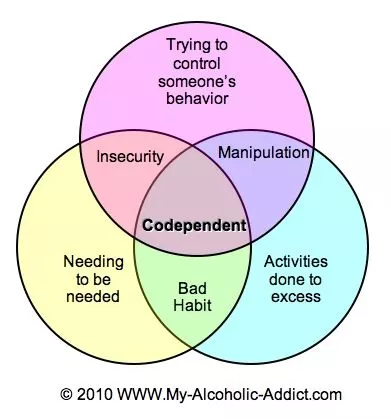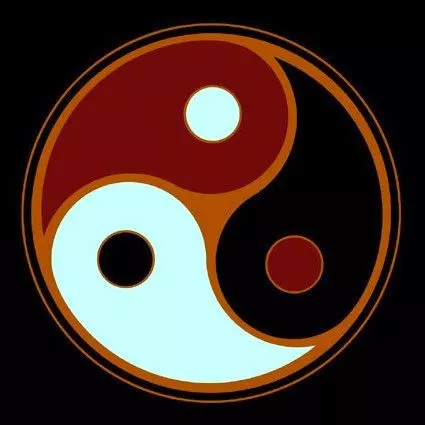Every relationship, be it with your partner or children or any loved one, needs to be nurtured to create a strong connection or a bond between individuals. But when this nurturing comes without set boundaries, it acts as an obstacle on the path of development or experiencing life’s different situations.
Parenting
“Your children are not your children.
They are the sons and daughters of Life’s longing for itself.
They come through you but not from you,
And though they are with you, yet they belong not to you.” ~ Khalil Gibran
In regard to parenting, it’s essential to not do for them what they can do for themselves. If you think about it, as children we all have a very strong sense of independence. We want to walk without holding hands, we want to tie our own shoes, we want to fall and get back up on our own terms. The best kind of help puts the tools in the person’s hand so they can do the work for themselves instead of anyone else doing it for them.
When as a parent you over-function or over-nurture your child, he will invariably become lazy and take it for granted that things will always be done for him. This in the long run will result in helplessness.
He may assume people will always know what he wants the way his parents did, and therefore not develop the skill of communicating his needs. It may also result in manipulative tendencies where the child feigns helplessness, incapability or immaturity and avoid taking responsibilities.
In the event when your child has begun showing these tendencies you can:
- Be loving but firm and confident
- Explain patiently and rationally why the child needs to comply to certain responsibilities. An informed mind, is a growing mind.
- Give only positive reinforcement and encourage good behavior
- When an instruction has been given that is helpful for building independence, leave the room so that you aren’t at the risk of being talked into doing it for them.
“The greatest gifts you can give your children are the roots of responsibility and the wings of independence.” ~ Denis Waitley
B y being afraid of stopping our child’s disruptive or manipulative behavior, we are failing to teach them about how some of their actions can be hurtful, non-compassionate or irresponsible. This will cause dissonance in perceiving how some behavior push people away and others help build connection.
y being afraid of stopping our child’s disruptive or manipulative behavior, we are failing to teach them about how some of their actions can be hurtful, non-compassionate or irresponsible. This will cause dissonance in perceiving how some behavior push people away and others help build connection.
Why we Over-nurture as Parents
It’s important to understand the source of our nurturing tendencies. For some it’s about correcting the wrongs of their childhood via their children. For example, a woman who grew up with a neglectful mother and father, could grow to start coddling her children and doing everything for them. In some ways this rescuer tendency is the effect of trying to heal her own childhood wounds externally through others. So in actuality, she is in need of attention and care.
In order to empathize with our child we may start doing things for them to lighten the struggle of growing up. In this case, we are unclear of where to draw the line: be too caring and hamper your child’s growth or become too strict and your child suffers.
Sometimes it can be because we’re playing the ‘martyr’, always needing to keep the ever-smiling, ever-caring, self-sacrificing image of ourselves alive both for others and for our own egos.
When a child is born to a person lacking healthy boundaries or who has abandonment trauma, it may result in stifling attachment to the child. In this case, the fear of displeasing the child translates to the parent as ‘I am not worthy’, ‘I am wrong for not giving into other people’s needs’. Here, the parent will compulsively try to please the child and since children are extremely perceptive, they start pushing their luck with how much they can get away with.
Among more reasons; parents simply may not be fully clear on what to expect out of children at different ages and what jobs to do and not to do for them. Perhaps, they do not want to come in conflict with their more lax partner or co-care giver or have a fear of being judged by other’s for being bad parents.
Whatever the reason, it’s of utmost importance to learn how we can love and nurture our child without taking away their opportunity for self-development, confidence and independence.
According to Marilyn Wedge, Ph.D., a family therapist and author of three books on family therapy, “After leaving home, these youngsters find themselves floundering in a world that bears little resemblance to the safe and nurturing environment of their family hearth. They have trouble having good relationships, deciding on career paths, and navigating the inevitable rough spots on the journey from the nest to adulthood. The sense of entitlement with which they grew up becomes more of a hindrance than a help.”
Over-Nurturing in Relationships
 Over-nurturing can also lead to codependency in relationships with our spouse or loved ones, where we depend on our partner to feel a sense of wholeness. Our own insecurities are constantly at play, so we constantly do things for them, and if we don’t take a breather and really look at our mirrors we will always be projecting that sense of neediness onto our partners.
Over-nurturing can also lead to codependency in relationships with our spouse or loved ones, where we depend on our partner to feel a sense of wholeness. Our own insecurities are constantly at play, so we constantly do things for them, and if we don’t take a breather and really look at our mirrors we will always be projecting that sense of neediness onto our partners.
“Whenever you feel compelled to put others first at the expense of yourself, you are denying your own reality, your own identity.” ~ David Stafford
Before we decide to do things for others, we need to consider a few things:
- Does the person we want to help, need it or are we pushing our own agenda?
- Will the person we are helping be receptive to help in the first place?
- Is the energy lending itself to a solution or feeding a problem?
- What are the positive and negative effects of our nurturing?
- Are we expecting something in return as a result of it?
- Are we projecting our needy aspects onto them and trying to heal ourselves through them?
- Are we empowering or disempowering them? Will it make them dependent or lazy?
- We can also turn it around and look at it from a different perspective like: ‘I need their nurturing’, ‘I need my nurturing,’ and understand what it is about ourselves that needs attention and care and permit ourselves to meet our needs.
“We need to help people to discover the true meaning of love. Love is generally confused with dependence. Those of us who have grown in true love know that we can love only in proportion to our capacity for independence.” ~ Fred Rogers
When we can firmly say we have the right reasons for nurturing (not manipulative, projection, guilt, fear-based) and have healthy boundaries, we can set out to give it lovingly and in such a way that the person we are caring for feels free and more empowered because of it.
We’re all born with incredible reserves of strength and a grounding sense of self that is constantly blooming through the course of our lives. We owe it to ourselves to recognize and honor this strength within each of us.
Reference & Image source




















